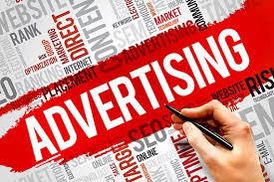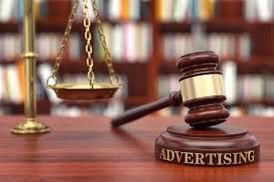•Introduction
The Advertisement act 1954 commenced on 1st April 1955 for the purpose to put a stop to the advertisements which are out there in the market luring the customers with wrongful claims and encouraging them to self-medicate without getting a proper diagnosis of the disease from a Doctor. In this blog, we will understand certain advertisements that our Central Government prohibits and exempts from the public presentation regarding any medicine.
•What is Advertisement Act 1954?:
# Date of publication of the bill and Commencement of the Act: The Bill for this Act was published on 30th April 1954 and it commenced on 1st April 1955.
# Act was made by: The Central Government gave a notification for this Act to come into force in the Official Gazette.
# Citation: It was the 21st Act to come into being in the year 1954 hence its citation is Act number 21 of 1954.
# Extent and number of sections: It is applicable in all parts of India including Jammu and Kashmir after the removal of Article 370 in 2017. It contains 16 Sections.
# This act prohibits advertisements which falsely claim to be the cure of any disease, claim to miraculously treat the disease and are being imported to /exported from India (these exported and imported advertisements will be considered prohibited under Section 19 of Sea Customs Act 1878 also).
•Important Definitions:
This Act provides definitions for the terms Advertisements, drugs and Magical remedies in Section 2 and they are:
1. Advertisement:
When any information about a commodity or service is being conveyed with the help of a notice, circular, label, wrapper or any other document then it is called advertisement according to this act. These advertisements can be both oral as well as written and can be by any means of generating or transmitting light, sound or smoke. For example, in The Advertisement for ENO (an antacid) which we all see on TV whereby a distressed middle-aged man complains about acidity and when he intakes ENO, he gets immediate relief.
2. Drug: This Act uses 3 ways to define a drug.
(i)The first one is that a drug is a MEDICINE used on a human being or an animal both externally and internally.
(ii)The second one is that a drug is a SUBSTANCE used for or in the diagnosis, remedy, mitigation, healing or prevention of any disease in both human beings and animals.
(iii)And the last one is that a drug is an ARTICLE OTHER THAN FOOD which is used to influence the system or functioning of the body of a human or an animal.
For example, Crocin and Paracetamol are drugs.
3. Magic Remedy:
This Act uses the terms like Talisman, Mantras, Kavach and other charms which are alleged to have miraculous power in them to cure any illness. These claims are usually hoaxes.
•Important sections of this Act:
1. Section 3:
This section contains banning advertisements of certain drugs for the treatment of particular illnesses and disorders, which are:
a) The advertisements for drugs which allege to be the procurement of miscarriages in women or prevention of conception in women.
b) The advertisements for drugs which claim to improve the capacity for the sexual pleasure of human beings.
c) The advertisement for drugs which claim to correct the menstrual disorder/ PCOS/ PCOD in women.
d) The advertisement for the drugs which allegedly cure, mitigate or help in the diagnosis of any disease is mentioned in the list of diseases mentioned in this act.
~Some of the names of the diseases mentioned in this act are:
i) Fits
ii) Blindness
iii) Cancer
iv) Cataract
v) Deafness
vi) Diabetes
vii) Brain diseases
vii) Disease relating to Uterus
viii) Menstrual flow etc.
2. Section 4:
According to this act, all persons are not to take part in the production of any drugs-related environment, if it contains the following:
a) If the advertisement gives a false impression of the real character of any drug.
b) If any advertisement claims more than what the intake of the drug can accomplish.
c) If an advertisement misleads or provides false knowledge about any drugs.
3. Section 5:
This act ensures that no person who works with alleged magical remedies put forth an advertisement about those remedies and it prohibits people from using malicious ways to attract customers to buy such products.
•Advertisements which are allowed to be showcased to the public :
1. If a person takes permission from the government to put an advertisement relating to drugs in the public domain or if the government itself publishes something in regards to drugs.
2. If a registered medical practitioner gets any advertisement relating to any drug in a secretive and specified manner.
3. If any advertisement relating to the drug is sent along with the packaging of the drug which usually involves instructions on how to consume or use that drug.
4. If any medical practitioner hangs a signboard relating to any disease on his premises. The board hanged by a medical practitioner is considered right because he/she is a professional in the medical field and has the required knowledge to put out an advertisement which is to help mankind.
5. If any book is published relating to any cure of any disease except for the ones which are prohibited under this act.
6. Any advertisement made in the Central Official Gazette.
•Penalty:
The Advertisement Act 1954 makes the display of any advertisement which is against the rules of this act a Cognizable (punishable by law) offence and the offender of this act is held liable by the court of law and can be given the following punishments:
# when the offender gets accused for the first time of publishing a prohibited advertisement according to this act then he/he can be punished with:
1. Imprisonment up to 6 months.
2. Fine
3. Both imprisonment and fine
# when the offender gets accused of publishing a prohibited advertisement under this act even after 1 conviction then he/she can be punished with:
1. Imprisonment up to 1 year
2. Fine
3. Both imprisonment and fine
•Conclusion:
In conclusion, The Advertisement Act 1954 provides guidelines regarding what type of drug/remedy-related advertisement a man can publish. This Act gives you the answer to the question that why pharmaceutical brands like Prega news do not guarenter, a pregnancy when used for the first time by women to check if she is pregnant or not and advise the user of such tests not to check just once but to take multiple such tests and consult a registered medical practitioner to get a full and accurate report about the nature of the medical condition. This Act promotes the prohibition of self-medication and encourages people to seek medical treatment from a registered medical practitioner instead of believing and wasting their money to buy or do remedies advertised by frauds.
Written By:- Yashi Aggarwal
BA.LLB 2nd Year
IMS LAW COLLEGE, NOIDA
SECTOR 62
2020-2025 BATCH





